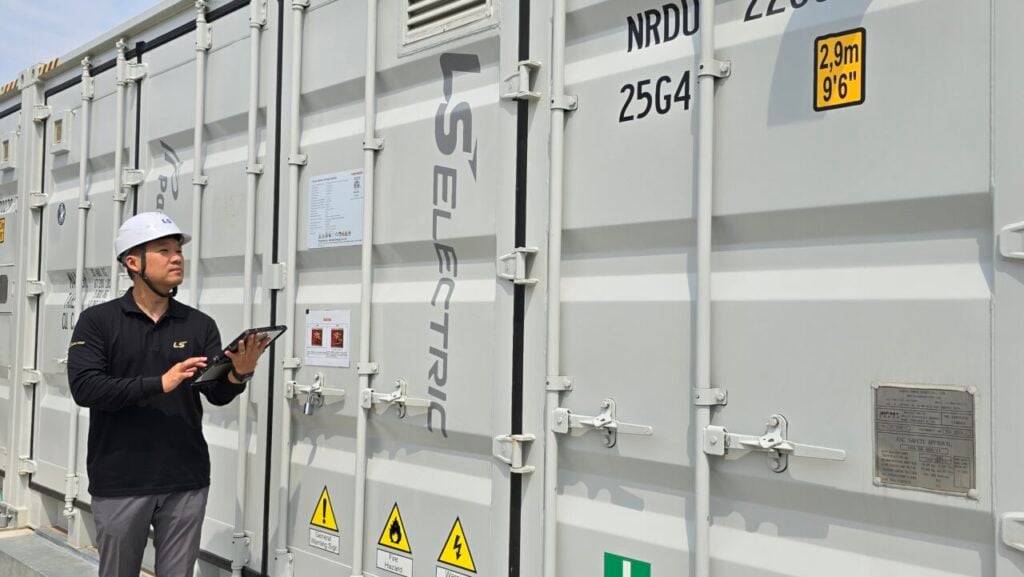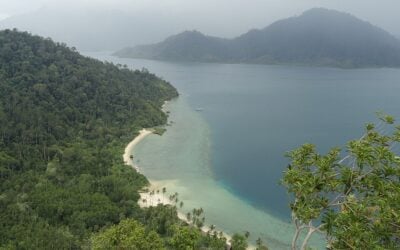
LS Electric will deploy a 20MW/90MWh battery energy storage system (BESS) in Japan after it was awarded the contract through a competitive solicitation process.
The Korean electrical equipment and automation systems company announced yesterday (14 April) that it will deploy the large-scale standalone energy storage facility in Watari, a largely agricultural town on the Pacific coast in Miyagi Prefecture, about 330km northeast of the Japanese capital, Tokyo.
Enjoy 12 months of exclusive analysis
- Regular insight and analysis of the industry’s biggest developments
- In-depth interviews with the industry’s leading figures
- Annual digital subscription to the PV Tech Power journal
- Discounts on Solar Media’s portfolio of events, in-person and virtual
LS Electric said the project is worth around ¥3.7 billion (US$25.9 million) and is scheduled for completion in April 2027.
The company was selected last year for a subsidy scheme hosted by the Tokyo Metropolitan Government. The scheme covers up to two-thirds of the capital costs of megawatt-scale energy storage projects up to a value of ¥2 billion. Projects must use eligible technologies, including lithium-ion (Li-ion), sodium sulfur (NAS), and other electrochemical storage, and put the stored energy into various electricity markets.
Tokyo’s government announced the subsidy scheme in 2023 and later appointed a joint venture (JV) between Japanese general trading company Itochu and UK-headquartered energy storage investment fund manager Gore Street Capital to oversee its dedicated investment fund. Gore Street announced the successful close of fundraising in Q3 last year.
The metropolitan government is running separate schemes for projects located within the service area of utility and grid operator Tokyo Electric Power (TEPCO) and those outside that connect to the general transmission and distribution (T&D) grid through other operators.
LS Electric’s project will connect to the grid of Tohoku Electric Power, which is responsible for the electric system in Japan’s eastern Tohoku region. The company said the Japanese market is growing quickly, helped along by subsidy schemes. The company noted that it was the only foreign entity to win a contract through the Tokyo scheme last year and a representative said Japan is “one of the largest and fastest-growing energy storage system (ESS) markets globally.”
In early 2024, BloombergNEF forecast that from an installed base of 4GW/10GWh as of the end of 2022, Japan’s cumulative energy storage installations will grow to about 10GW/27GWh by 2030.
Currently, schemes such as that run by the Tokyo government are in place regionally along with national schemes administered by the Ministry of Economy, Trade and Industry (METI) and Agency for Natural Resources.
The schemes come on the heels of the national government’s revision of regulations under the Electricity Business Act to allow grid-connected ESS to be classified as generators. The government has determined that ESS capacity will be necessary to stabilise the electricity system and enable Japan to hit its target of sourcing 36% to 38% of its total power generation from renewable sources, including around 15% from solar PV and 5% from wind, by 2030, up from just under 20% in 2020, when the government introduced a Green Transformation (‘GX’) policy strategy.
LS Electric has its own in-house energy storage system integrator arm, LS Energy Solutions, active in markets including the US and partnered with Gore Street’s own energy storage investment fund-developer business for a 200MW project in California, which recently went into commercial operation. It said the company would form a consortium with local companies to implement and operate the Miyagi Prefecture BESS and carry out engineering, procurement and construction (EPC) and operations and maintenance (O&M) duties.
The company said it also aims to pursue further BESS contracts in Japan, as well as solar PV EPC projects and sales of power equipment including transformers.






